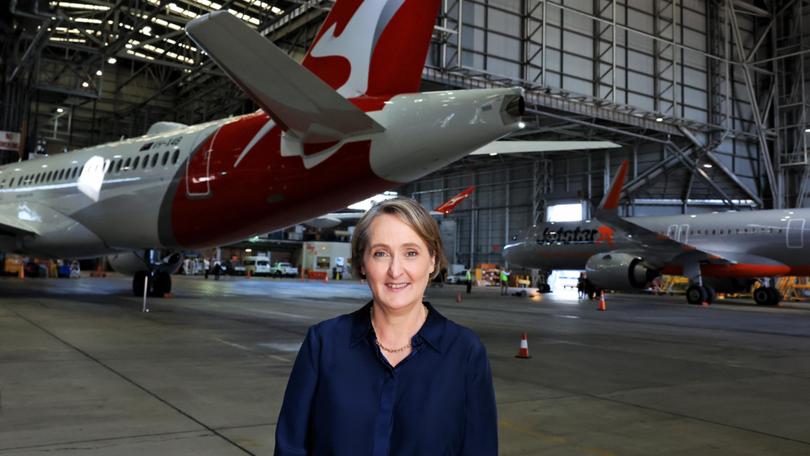Qantas’ profit falls as CEO Vanessa Hudson focuses on ‘getting the balance right’
Qantas has suffered a 28 per cent fall in post-tax statutory profit in the 2024 financial year — blaming moderating fares, increased spending on customer initiatives and reduced freight revenue.

Qantas has booked a 28 per cent fall in post-tax statutory profit to $1.25 billion in the 2024 financial year — blaming moderating fares, increased spending on customer initiatives and reduced freight revenue.
Releasing her first full-year results on Thursday, Qantas chief executive Vanessa Hudson said the year focused on “getting the balance right in delivering for customers, employees and shareholders”.
The star performers were Qantas Domestic and Jetstar, with the group delivering $1.3b in underlying earnings with an EBIT margin of 14 per cent.
Sign up to The Nightly's newsletters.
Get the first look at the digital newspaper, curated daily stories and breaking headlines delivered to your inbox.
By continuing you agree to our Terms and Privacy Policy.“Qantas benefited from increased corporate and resources travel and ongoing high demand for international premium seats while Jetstar delivered its highest result as it grew to meet increased demand from price-sensitive leisure travellers and saw the benefits from its new aircraft,” Ms Hudson said.
“The investment in operational reliability and customer initiatives delivered a positive improvement in on-time performance and customer satisfaction with Qantas ending the year as the most on-time major domestic airline.”
Qantas’ mishandled baggage reduced by almost a third year on year and is now better than pre-COVID levels, the group said. It also provided more than 45,000 Bonza and Rex customers with free-of-charge flights after they ceased operations.
The embattled airline has also announced employees would be rewarded with a $500 travel voucher.
Qantas said it was seeing stable travel demand across the portfolio with positive revenue momentum heading into the first half of the current year.
Group domestic unit revenue is expected to increase by 2 to 4 per cent in the first half of the financial year compared with the previous year.
But group international unit revenue is expected to fall 7 to 10 per cent over the same period as market capacity continues to restore, however, this rate of decline is expected to slow in fiscal 2025.

